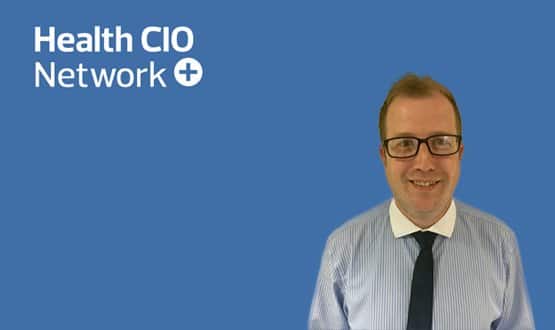David Walliker, chief information officer at Royal Liverpool and Broadgreen University Hospitals Trust, recalls his first hack event and how it turned out to be more exciting than watching Spurs play at Wembley Stadium.
November1, 2017 was a big day. Spurs, arguably the greatest team in football history, were playing Real Madrid at Wembley stadium. I had my tickets ready and expected to travel down to London from EHI Live to watch the game.
Circumstances, however, were not quite as perfect as the football on display from Spurs this season, and I was subsequently invited to take part in a MIT Medicine roundtable on the same evening and a hack event the next day with Innovation Agency.
As part of our GDE plans, we have partnered with Boston. Not one hospital in Boston, but the entire city. This was an important part of our partnerships and plans for the future, so I changed my plans accordingly and went to London not knowing what to expect – as this was my first hack.
But first came the roundtable. While sitting next to professors and discussing the challenges for transformation in the NHS, I remembered a comment I had heard at EHI Live which seemed to aptly express the issue at hand: “you wouldn’t put solar panels on a thatched roof”
I shamelessly stole that and used it while describing examples of digital transformation. After some great discussions, I left the conference, excited about what the next of hacking would bring.
Next day I turned up wearing jeans to the event, thinking that was the hack attire, whereas everyone else was wearing suits. I was armed with a laptop with python software, assuming it was going to be a day of introducing my ideas about some applications to the world. Professing to be a limited python programmer, I wasn’t going to let this stop me.
After introductions from the King’s Fund, the ever-passionate Helen Bevan and the MIT Medicine Hack, the day commenced. It started with an opportunity for anyone to go up and pitch an idea. Any idea.
The idea was that you could then pick which idea you wanted to help hack. It was how I imagined speed dating would be for apprentice candidates.
As the ideas were pitched, ranging from how to introduce a kitemark approach to research, to how to use technology to monitor dementia patients at home; it became apparent that this wasn’t going to involve my python-loaded laptop, but rather process mapping and design. I closed the laptop and poured another coffee.
The next step was to group the pitches, followed by the selection process. Even though few of the ideas were not up my street, I quite liked the others and eventually picked the dementia group.
The idea was from someone with personal experience of caring for a dementia patient so it resonated with me as I had seen my granny go from completing the Guardian crossword in 15 minutes to not knowing who my mum was in a year.
It soon became clear that we had to start from the beginning – from a blank piece of paper. We needed to keeping challenging learnt behaviours. ‘Why’ was a word which we kept asking about pretty much everything in our processes.
A key realisation was that despite the home sensors, Alexa and other latest technology, it was the social aspect which was missing in dementia care.
We heard examples of patients ready for discharge from hospital but no one being there to pick them up, to people at home suffering terrible social isolation. It was at this point, with the mixture of being surrounded by clever people and coffee, that it hit me: ’Social Needia’ might be the solution.
If there was a way by which local communities could provide company (not direct care) to frail and elderly patients, then perhaps a small answer to a large problem could be formulated.
So we designed a method by which Fred (frail and elderly!) could have access to home technology. For example, if it could be fed into a computer application whether the patients have managed to put on a kettle, then depending upon the answer, a volunteer could go around to have a cuppa with them. And if those volunteers could be rewarded for their time by giving them discounts at the local shops, then perhaps we were on to something.
We then set out to put together the pitch along with a detailed vision, including the method and approach. This pitch was then presented in just three minutes – the hack must be energetic and creative.
We didn’t win. It was a travesty, the kitemark group won. Their idea was genius and well thought through, but we had Fred and Social Needia. It was a very long day, but very rewarding. To watch people interact with a single objective at each table and see the output at the end of the day made it all exciting and worthwhile.
And what about the football I missed, you ask? We won, 3-1, but I wouldn’t have missed this experience and opportunity. So I went back to the hotel and watched the game on my laptop. It did come in use after all.

